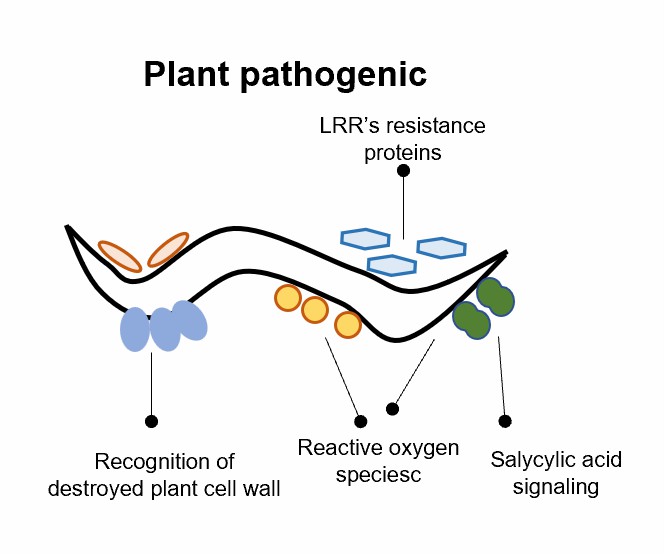After nematode invasion, plant hosts produce many reactive oxygen species (ROS) and terpenes to resist or inhibit nematode invasion. Reactive oxygen species can cause enzyme inactivation, protein oxidation, DNA damage, lipid peroxidation, and protein denaturation, destroy cell function and completion, and have a strong toxic effect on nematodes. Terpenes affect the reproduction rate and pathogenicity of nematodes. To colonize a host successfully, plant nematodes must degrade or eliminate these chemical defense products through detoxification.
Lifeasible is committed to analyzing the mechanism of nematodes eliminating host chemical defense for scientific and clinical purposes. Our experienced scientists and technicians can provide comprehensive customized services for analysis at all stages. With novel strategies and proprietary features of our platform, we can adjust to meet the needs of each client.
 Fig.1 Plant nematodes use a multitude of strategies for host immunomodulation.
Fig.1 Plant nematodes use a multitude of strategies for host immunomodulation.
Lifeasible is dedicated to bringing decades of valuable experience to help our clients. Our customers will work with our professional teams who can understand and have conquered the challenges you are faced with. If you are interested in our services or have any questions, please feel free to contact us or make an online inquiry.
Lifeasible has established a one-stop service platform for plants. In addition to obtaining customized solutions for plant genetic engineering, customers can also conduct follow-up analysis and research on plants through our analysis platform. The analytical services we provide include but are not limited to the following:
July 13, 2024